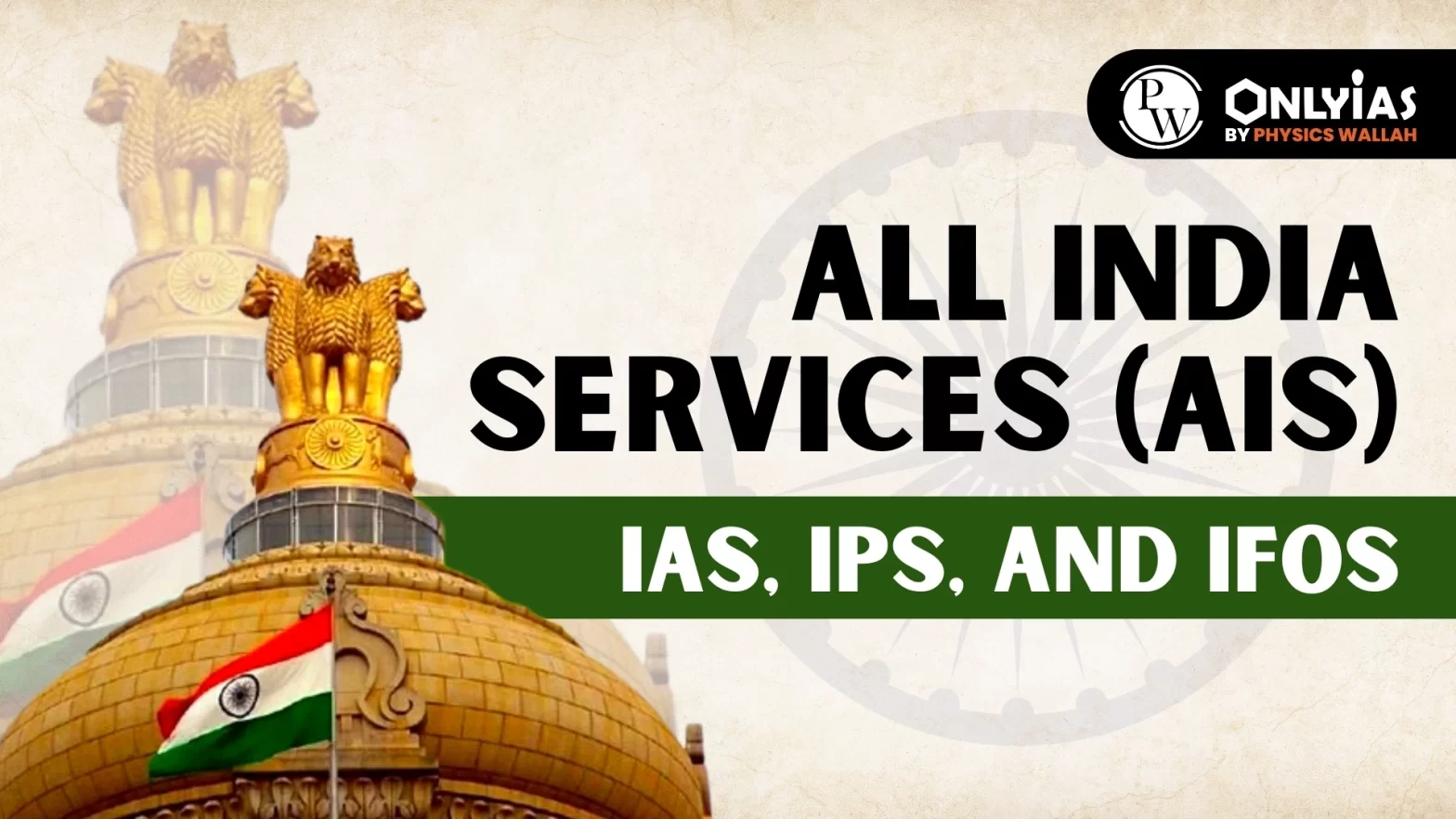All India Services (IAS, IPS, IFS) play a crucial role in India's governance, law enforcement, and conservation. Administered by UPSC, these services contribute to policy-making, public safety, and environmental stewardship, shaping the nation's progress.

The All India Services (AIS) encompass three civil services in India that are shared between the central and state governments. These services include
Civil servants recruited through the All India Services by the central government are allocated to various state government cadres, and some may also serve the central government on deputation at later stages in their careers. All officers belonging to these three services adhere to the All India Services Rules, governing aspects such as pay, conduct, leave, and various allowances.
The All India Services Act of 1951 allows for the creation of two additional All India Services, namely, the Indian Service of Engineers and the Indian Medical and Health Service.
The Cadre Controlling Authority for all three All India Services is the central government. Regarding promotion regulations, the Ministry of Personnel, Public Grievances, and Pensions is the authority for IAS, the Ministry of Home Affairs is the authority for IPS, and the Ministry of Environment, Forest and Climate Change holds authority for IFS/IFoS. Recruitment for these services is conducted by the Union Public Service Commission (UPSC) through the annual Civil Services Examination for IAS and IPS, and the Forest Service Examination for IFS/IFoS. Since 2012, the preliminary tests for these two examinations have been combined.
| Must Read | |
| NCERT Notes For UPSC | UPSC Daily Current Affairs |
| UPSC Blogs | UPSC Daily Editorials |
| Daily Current Affairs Quiz | Daily Main Answer Writing |
| UPSC Mains Previous Year Papers | UPSC Test Series 2024 |
The All India Services (AIS) consist of three civil services: the Indian Administrative Service (IAS), the Indian Police Service (IPS), and the Indian Forest Service (IFS). These services are jointly administered by the central and state governments.
The responsibility for appointing officers to the All India Services lies with the Union Public Service Commission (UPSC).
The central government serves as the Cadre Controlling Authority for all three All India Services. It oversees various aspects, including the allocation of officers to state government cadres, promotions, and other administrative functions.
The All India Services Act of 1951 allows for the creation of two additional All India Services: the Indian Service of Engineers and the Indian Medical and Health Service.

<div class="new-fform">
</div>